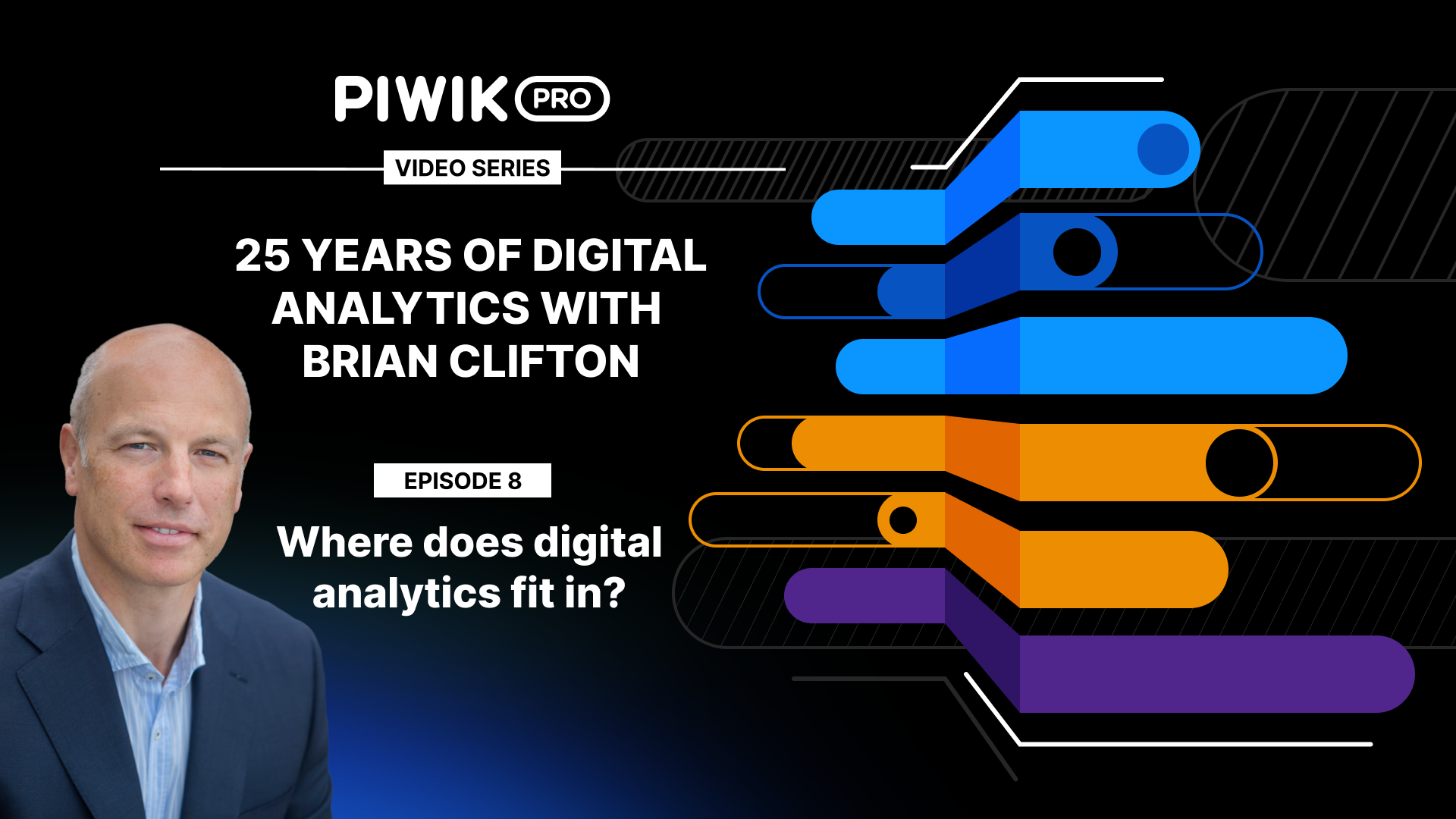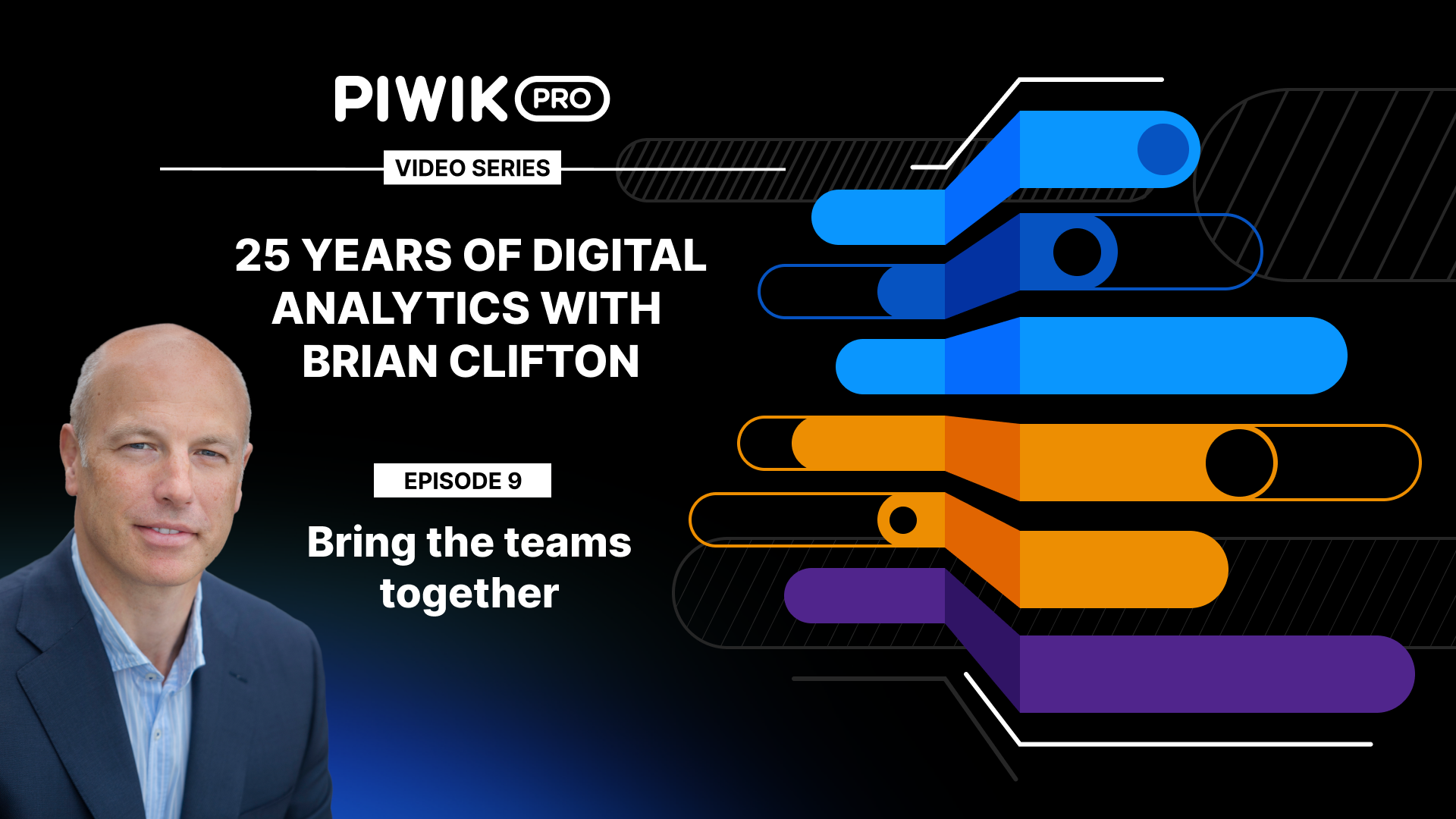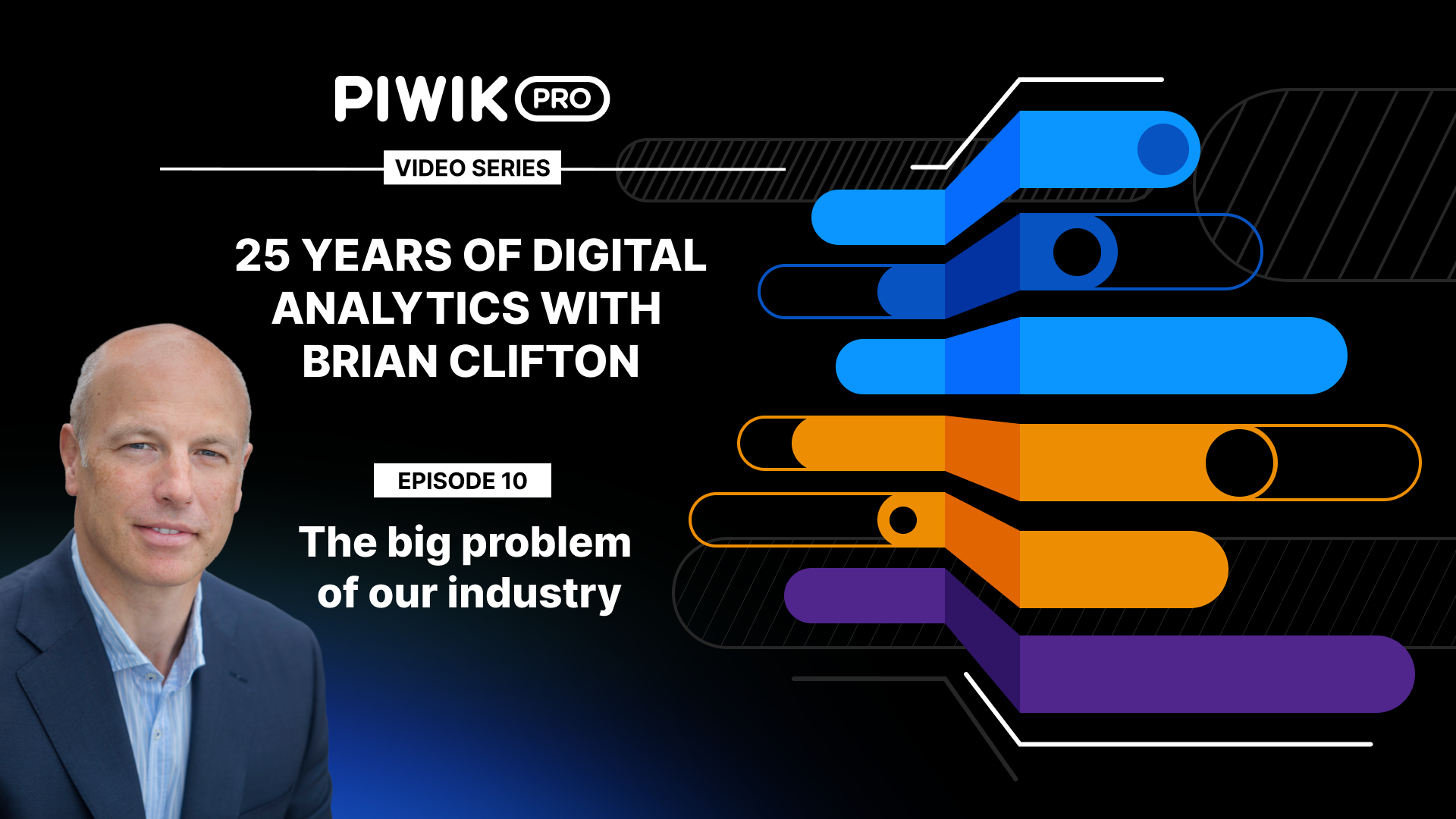As organizations increasingly rely on data in their business decisions, the challenges of ensuring data accuracy, consistency, and ethical collection are becoming more and more important. Along with understanding the audience’s needs, supporting collaboration between teams, and securing privacy compliance, these challenges have evolved into data collection and analytics priorities.
Let’s dive into the third episode of our video series with Brian Clifton, a renowned digital analytics and privacy expert. He presents the history of digital analytics, including technologies and mindsets surrounding the analytics industry. The first part was dedicated to the origins of web analytics tools, and the second focused on the increased interest in privacy in data collection.
In the third part, Brian discusses challenges in ensuring proper data quality and explores how organizations can overcome them to build their audience’s trust, enabling more informed and effective decision-making. You can watch the videos in the corresponding sections of this article.
The importance of data in modern organizations
As data analysis now impacts all aspects of a business, it has become difficult to locate where data analytics actually fits within organizational structures. Data democratization can cause greater buy-in and innovation, but it can also result in a lack of data ownership- in other words, it becomes unclear who, precisely, is responsible for it.
There are two important challenges that arise when dealing with data in larger organizations:
- Understanding the audience’s perspective: Data experts often struggle to simplify complex concepts for those with less experience, such as marketers who engage with analytics less frequently. It’s essential to present data in a consistent and accessible way without losing key insights.
- Determining the role of analytics: Analytics is often used across multiple departments, making it difficult to establish clear ownership and governance. Organizations need to ensure that their data strategy aligns with overall business objectives, rather than it being siloed by each department.
“One of the great challenges with analytics is it doesn’t fit in any one place anymore; it’s everywhere, and because it’s everywhere, it’s very difficult to take ownership of it. As with any project without an owner, there is no leadership, and that results in teams working in their own data silos.”
Brian Clifton, Digital analytics and privacy expert
Businesses need to adopt a holistic approach to fully leverage the power of data-informed decisions. This means engaging multiple stakeholders across different departments and ensuring that the impact of data-driven decisions is understood and aligned with the overall business strategy. While it can be challenging to broaden the scope of a data project, especially when budget constraints and departmental boundaries come into play, it is essential for long-term success.
The impact of data quality on decision-making processes
Modern organizations rely on data to make informed decisions across all levels of the business. Whether it’s determining the success of a marketing campaign, optimizing supply chain logistics, achieving efficient staffing levels, or enhancing customer service, data provides the information needed to guide strategic choices. As the digital landscape expands, the amount of data available to organizations has grown exponentially, providing new opportunities to gain a competitive edge.
However, the abundance of data also presents challenges. It’s not just about having access to data but understanding what data is relevant, how to analyze it, and how to apply insights effectively.
“Currently, large chunks of collected data are simply noise. Data noise is not only distracting, but can be costly to process and store, can bury the useful signals you need, and are a business risk for privacy compliance. Auditing your data has never been so important.”
Brian Clifton, Digital analytics and privacy expert
The evolution of data collection and usage practices reflects a broader shift in how businesses operate. The days of simply gathering as much data as possible just because you can are over. Now, the focus is on collecting and using the right data to benefit both the organization and its customers.
Moving data handling from IT to other departments
In the early days, analytics was primarily an IT function focused on building and maintaining the website. In the mid-2000s, it expanded into marketing, becoming a key tool for driving strategy. Today, however, the reach of data analytics extends, impacting various departments.
Effective collaboration between IT, marketing, and legal teams is key to navigating the complexities of modern data management. By working together, the teams ensure the four pillars of analytics are in place: that data is accurate, compliant, actionable, and aligned with the organization’s strategic goals.
“Once you get teams out of their silos and working together, they start to think in terms of answering the business questions, rather than focusing on what data to collect. That is where the conversation should start.”
Brian Clifton, Digital analytics and privacy expert
Using data analytics to provide meaningful insights rather than just numbers
Being “data-driven” is a buzzword, because it’s not enough just to collect numbers. The real value lies in being data-informed, which means understanding what the data truly represents and using it to drive meaningful decisions. Many organizations focus on headline numbers without investing time and energy in thinking about what insights they can derive from this data and how they can act on them.
Data must be accurate, consistent, and aligned with business objectives to be truly valuable. This requires a robust data governance process in which business questions drive data collection, not the other way around.
It’s also essential to ensure high-quality data is gathered ethically and with proper user consent. Data should inform strategic decisions, helping businesses understand customer behavior, optimize processes, and ultimately create more value. With these insights, it becomes a powerful tool for growth and innovation.
This is the third article based on the video series with Brian Clifton.
In the fourth, we’ll discuss the future of digital analytics.














